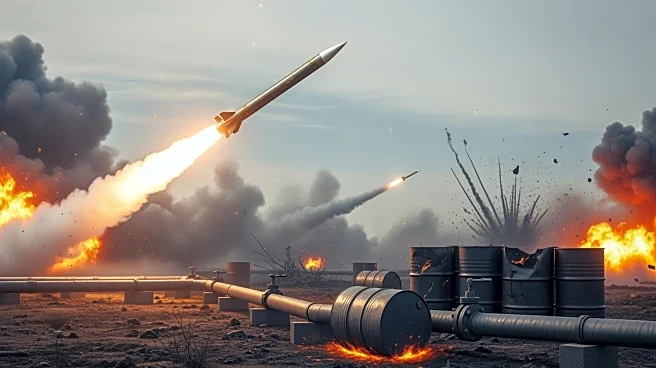What's Happening?
Ukraine's expanded long-range strike capabilities have significantly disrupted Russian fuel exports, with about half of Russia's refineries offline or damaged due to Ukrainian drone strikes. This has led to a collapse in export flows of petrol and diesel,
reminiscent of pandemic-era levels. Daily rail shipments of crude and refined fuel have fallen by 26% compared to last year, and seaborne exports dropped by 17% in September alone. The strikes have caused a revenue loss of over $12 billion for Russia in one month. Ukraine's FP-1 drones and potentially new Flamingo cruise missiles have been instrumental in these operations, targeting refineries and fuel depots, further exacerbating the crisis.
Why It's Important?
The disruption of Russian fuel exports has significant implications for global energy markets and geopolitical dynamics. The reduction in Russian fuel supply could lead to increased energy prices and impact countries dependent on Russian exports. For Ukraine, the success of these strikes demonstrates its growing military capabilities and strategic advantage in the ongoing conflict. The situation also highlights the vulnerabilities in Russia's energy infrastructure and the potential for prolonged economic challenges. The international community may need to reassess energy security strategies and consider the broader implications of the conflict on global energy supply chains.
What's Next?
Russia faces difficult choices in addressing the fuel export crisis, including importing refined fuel, accepting long-term export losses, or rationing domestic supplies. Repairing damaged refineries and depots will take time, and continued pressure from Ukrainian strikes could prolong the crisis. The situation may prompt Russia to seek alternative strategies to mitigate the impact, such as strengthening defense measures or seeking diplomatic resolutions. The international community will likely monitor the developments closely, considering potential impacts on energy markets and geopolitical stability.















